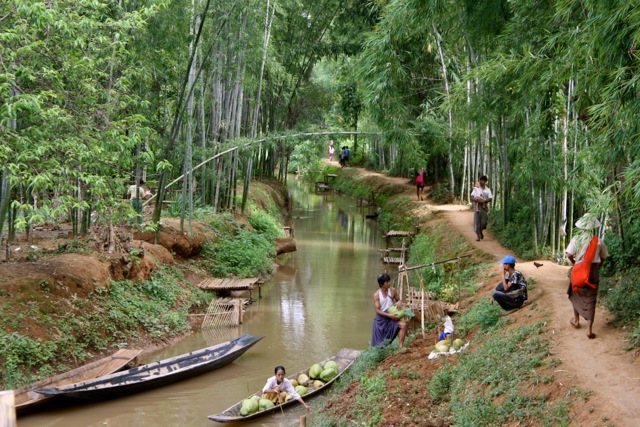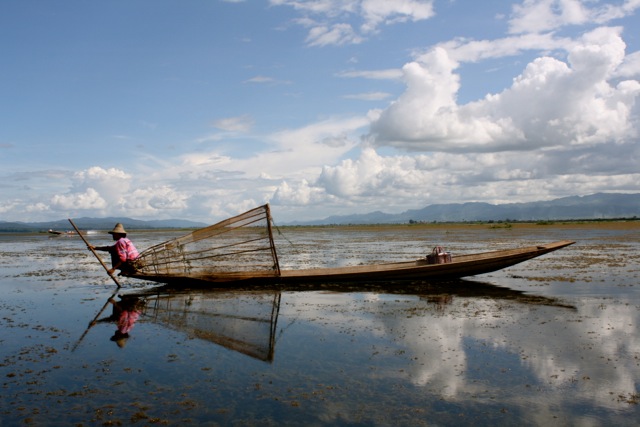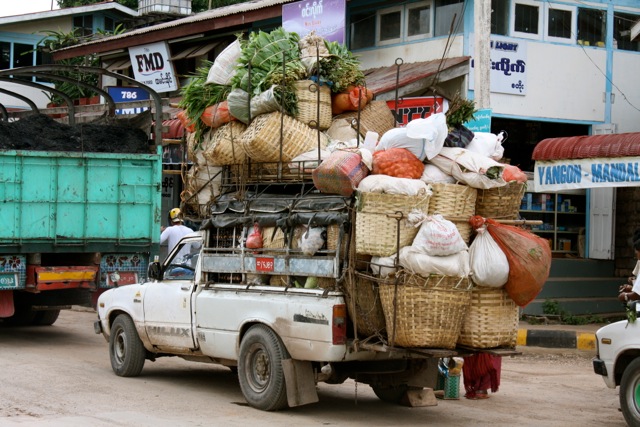Is this what progress looks like?
We are stuck in a traffic jam. Haven't moved for ten minutes on our way from the Yangon airport to downtown. The whole trip used to take no longer than twenty minutes. The air smells terrible. It is hot and sticky.
"The government has lowered the taxes and tariffs on new cars," my friend explains, as if he had to apologize for the long drive. "There are a lot of cars being imported now."
I nod and think of my first trip to Burma, back in 1995. There were only a handful of cars on the streets back then. Everybody walked or rode a bike. The air was fresh. I tell my friend of my sweet memories.
He laughs. "Yes. You enjoyed it because YOU were sitting in a car. If you had to walk and carry all your luggage all the way from the airport to your hotel you might have felt differently."
He has a good point. I decide to feel happy for all the Burmese who are stuck with me in this early evening rush hour traffic jam.
***
This morning I went downtown and I have to say, the city feels very different. I walked down 37th Street, 38th, 39th, streets I have walked countless times over the years. I used to carefully navigate the deep and dangerous potholes, the smell of open sewage permeating the air. The same streets are paved now. The sewer is under construction and in a few weeks it will be covered. There are lots of new shops selling books, newspapers and magazines. The new government has lifted censorship, and the press is freer and more open than at any time my Burmese friend can remember. Aung San Suu Kyi, the opposition leader who was under house arrest most of the past 22 years, is everywhere now. She smiles and waves from magazine covers, billboards, t-shirts. Is all this change real? I can't wait to talk to my friends and hear their opinions in the next couple of days.
I walked for hours. I drank great Burmese tea, strong with a lot of sweetened milk. A man was selling old magazine and newspapers on the sidewalk. He had a stack of New York Times Book Reviews in front of him. They were all from the last century, the top one from September 1990.
He saw my interest.
"You want one," he asked?
"They are kind of old," I replied.
He looked at me, a bit puzzled. "So what? Good books don't get old."
Certain things haven't changed in Burma.


 Transporting goods or traveling in Burma is never easy.
Transporting goods or traveling in Burma is never easy.